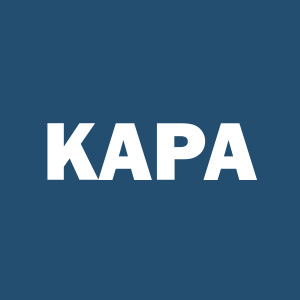Kairos Pharma Oral Presentation on Its Investigational Compound KROS 101 at the 13th AACR-JCA Joint Conference Supports the Compound’s Potential as a Therapeutic for Melanoma and Glioblastoma
In the talk, titled, “KROS 101: A Next-Generation GITR Agonist Boosting Anti-Tumor T Cell Responses and Reprogramming the Tumor Microenvironment,” recent findings from the Company’s in vivo work on the compound was presented. The results, which can be found here, demonstrated that KROS 101 is a potent GITR ligand agonist that enhances T cell infiltration, proliferation, and ability to kill cancer cells in mouse models of melanoma and in human glioblastoma in vitro, while effectively reducing T reg-mediated suppression. KROS 101 showed significant activity in enabling T cell proliferation and killing of melanoma tumors in vivo as well as glioblastoma tumor in vitro.
GITRL, one of the checkpoint cytokines in the family of tumor necrosis factor ligand family, regulates T cell function in autoimmunity and cancer. KROS 101 stabilizes the active form of GITRL and thereby reduces suppressive T-cells and enhances cytotoxic T cells. In a preclinical study, KROS 101 reduced melanoma tumor in a human GITR knock-in mouse model compared to those in mice treated with the GITR antibody TRX518, which was recently in clinical trials for solid cancers.
Dr. Ramachandran Murali, VP of Research and Development at Kairos Pharma and co-inventor of KROS 101, stated, “The performance of KROS 101 as a central mediator of T cell expansion in cancer has been supported by these studies.”
Dr. John Yu, CEO of Kairos Pharma and co-inventor, added that “the preclinical data support the potential to exploit GITR as a lever for T cell expansion and novel therapy for cancer.”
The American Association for Cancer Research (AACR) and Japanese Cancer Association (JCA) hosted the 13th AACR-JCA Joint Conference from February 1-5, 2025 at the Hyatt Regency Maui, in
About Kairos Pharma Ltd.
Based in
CAUTIONARY STATEMENT CONCERNING FORWARD-LOOKING STATEMENTS
This press release contains “forward-looking statements” as defined in the Private Securities Litigation Reform Act of 1995. You can identify forward-looking statements as those that are not historical in nature, particularly those that use terminology such as “may,” “should,” “expects,” “anticipates,” “contemplates,” “estimates,” “believes,” “plans,” “projected,” “predicts,” “potential” or “hopes” or the negative of these or similar terms. The reader is cautioned not to rely on these forward-looking statements. If underlying assumptions prove inaccurate, or known or unknown risks or uncertainties materialize, actual results could vary materially from the expectations and projections of Kairos Pharma. We base these forward-looking statements on our expectations and projections about future events, which we derive from the information currently available to us. Such forward-looking statements relate to future events or our future performance. In evaluating these forward-looking statements, you should consider various factors, including: our expectations regarding the success and/or completion of our Phase 1 and Phase 2 clinical trials; our success in completing newly initiated clinical trials, commence new trials, and obtain regulatory approval following the conclusion of such trials; challenges and uncertainties inherent in product research and development; and the uncertainty regarding future commercial success. These and other factors may cause our actual results to differ materially from any forward-looking statement. Forward-looking statements are only predictions. The forward-looking statements discussed in this press release and other statements made from time to time by us or our representatives, may not occur, and actual events and results may differ materially and are subject to risks, uncertainties and assumptions about us, including those described in Kairos Pharma’s prospectus filed with the SEC. We are not obligated to publicly update or revise any forward-looking statement, and Kairos Pharma is not required to update any forward-looking statement as a result of new information or future events or developments, except as required by
View source version on businesswire.com: https://www.businesswire.com/news/home/20250206902972/en/
CORE IR
Louie Toma
investors@kairospharma.com
Source: Kairos Pharma, Ltd.







